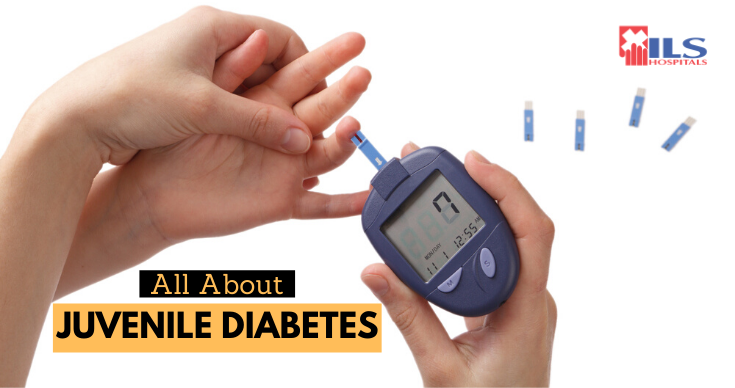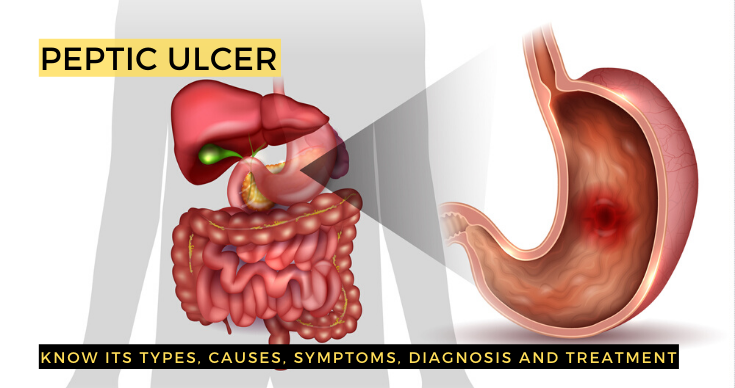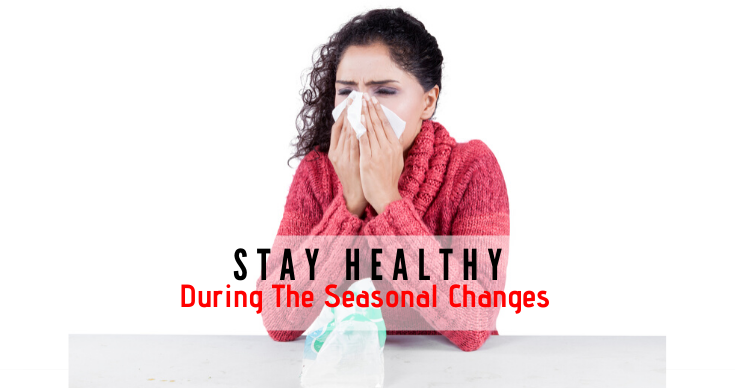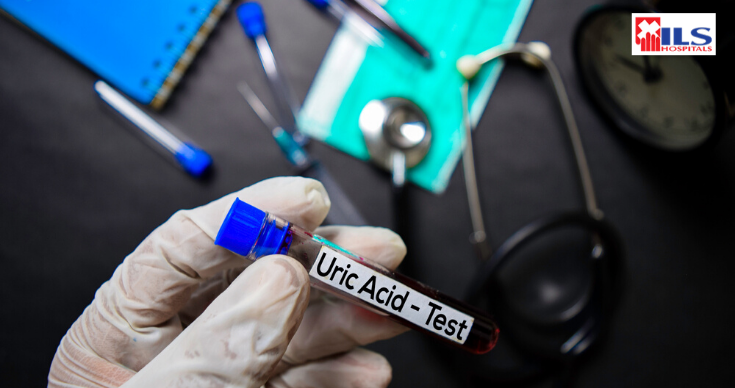Let’s Know More About Juvenile Diabetes
Juvenile diabetes or simply called diabetes in children is on the rise today. It was earlier believed to be the disease effecting only the elderly. But now it is found in children and younger people as well.
Diabetes – two types – Type 1 and Type 2. In type 1 diabetes, the pancreas does not make insulin while in type 2 diabetes, the body does not make sufficient insulin or does not use the produced insulin effectively. Significantly, type 1 diabetes is more common in children.
The primary cause of juvenile diabetes is genetics. Let’s discuss the symptoms of diabetes in children.
-
Frequent urination
-
Increased hunger and thirst
-
Fatigue
-
Fruity-smelling breath
-
Sudden weight loss
-
Hazy vision
-
Irritability.
Diagnosis
Although symptoms are enough to prove diabetes mellitus in children but for proper confirmation, certain diagnostic tests are recommended by the paediatric diabetologist. So, the question arises, what are the diagnostic tests performed to confirm juvenile diabetes.
The diagnostic tests for diagnosing diabetes in children are as follows:
-
Blood Sugar Test (both fasting and random)
-
Glycated Haemoglobin (A1C) Test
-
Urine Test.
Treatment
Diabetes treatment in children as generally prescribed by the paediatric diabetologist includes the following:
-
Medications
-
Insulin injections
-
Regular monitoring of blood sugar levels
-
Changes in diet and lifestyle.
Prevention
We believe prevention to be always better than cure. Is there any way to prevent diabetes in children? Sure, there are many ways you can prevent your children from getting diabetes. Some of them are as follows:
-
Encouraging them to be more active
-
Feeding them healthy meals
-
Cutting back on their sugar intake.
Getting timely diabetes treatment is vital for your child. Hospitals in Kolkata and Agartala offer Juvenile diabetes treatment from the best diabetologists.
Let’s Learn About Different Vitamins And Their Importance In Our Body
For a healthy body, we need an adequate amount of carbohydrates, protein, good fats, vitamins and minerals. There are different kind of vitamins that perform different functions in our body. Today, ILS Hospitals, one of the best hospitals in Kolkata and Agartala, will enlighten you about different vitamins and their importance in the human body.
Vitamin A
Vitamin A is crucial for healthy vision and preventing night blindness. This vitamin also helps in fostering cell development, healthy bones and teeth. Vitamin A ensures good reproductive health and allows the other organs like kidney, heart and lungs to function properly.
Best food sources: Eggs, fish, carrots, dairy products, spinach, pumpkin etc.
Vitamin B
Vitamin B helps in the body’s metabolism and cell development. There are different types of vitamin B, each performing their own functions. Let’s talk about a few here.
Vitamin B9 (Folic Acid or Folate): Vitamin B9 converts food into energy and is vital for pregnant women to help prevent congenital defects. Folate can be derived from natural food sources (eggs, fish, beans, peas and so on) while folic acid, being a synthetic form is consumed in the form of pills.
Biotin (also called Vitamin B7, B8 and Vitamin H): Biotin maintains the body’s metabolism and improves the health of skin, hair, and nails. Best food sources for biotin are egg yolks, soybeans and fish, sweet potatoes, chicken liver, whole grains, etc.
Vitamin B12 (Cobalamin): Vitamin B12 helps in the formation of red blood cells, DNA, RNA and myelin. This vitamin prevents congenital defects, memory loss and depression.
Best food sources: Vitamin B12 is present in almost all animal products, like eggs, milk, seafood, and meat.
Vitamin C
Vitamin C repairs the body tissues and strengthens the immune system. It fosters the wound healing process and protects cells from any damage.
Best food sources: All citrus fruits, cauliflower, capsicum, papaya etc.
Vitamin D
Vitamin D ensures healthy bones by allowing the body to absorb calcium, maintains phosphorus levels in the blood and reduces depression.
Best food sources: Egg yolks, cod liver oil, fatty fishes, mushrooms, milk and milk products.
Vitamin E
Vitamin E prevents cell damage, heart diseases and inflammation. It is best for promoting good vision, healthy hair and skin.
Best food sources: Almonds, peanuts, walnuts, olive oil, sunflower oil, dried apricots etc.
Vitamin K
Vitamin K helps in blood clotting, prevents osteoporosis, tooth decay and certain diseases.
Best food sources: Soybeans, egg yolks, chicken, cabbage, spinach and pumpkin.
We hope you found this blog informative. Hospitals in Agartala and Kolkata is always available to give you good medical service.
How To Be Productive During Your Home Quarantine
Due to COVID-19, the entire country is in lockdown, except for essential services, like hospitals, grocery stores, medicine stores and few more. Since there is no vaccine for Coronavirus as on date, we are compelled to stay inside our homes and practice social distancing to keep the number of cases low.
Home quarantine allows us plenty of time. We can utilize this time to spend time with our family and learn skills to enhance our personality. Today, ILS Hospitals, one of the best hospitals in Kolkata and Agartala will show you some ways through which you can stay productive during this home quarantine.
Learn a new hobby
Sadly, people were not spending enough time on their hobbies. Hobbies started losing its essence. Don’t let that happen, learn a new hobby or give more time to your existing hobby during this home quarantine. You can learn new hobbies, like cooking, sewing, knitting, etc. even by watching online tutorials.
Organize your home
No matter how big or small your home is, it is always beautiful. Since everyone is in the house right now, you can make the use of more muscle power to declutter and organize your home.
Read educational books
Reading is always helpful. If you have children in your home, know that children learn by imitating others. If they see you reading educational books, they will follow suit.
Participate in online classes
Online classes are beneficial for both parents and children. Teach your children through online methods. Opt for online classes to enhance your professional skills for growth in your career.
Stay hygienic and stay safe at home. Listen to the government’s advisories and be a responsible citizen. Remember, health is wealth so take good care of your mental and physical health. For any medical emergency, you can visit ILS Hospitals in Agartala and Kolkata.
Covid-19: Follow Rules And Regulations To Be Safe And Healthy
COVID-19 is a highly communicable disease, hence both the central and state government took the right initiative to flatten the curve – lockdown. The government is doing what it can during this medical emergency but we as a citizen of civil society must follow the rules and regulations dictated by the government for our and everyone else’s safety.
Today, ILS Hospitals, one of the best hospitals in Agartala and Kolkata will discuss the importance of following rules and regulations laid by the government. Firstly, we do not have a perfect cure for COVID-19, secondly, there’s a lot more undiscovered about this newly mutated virus, Coronavirus, and thirdly it is highly infectious and can infect many people through community transmission.
So, let’s know what rules we must follow to avoid getting infected with Coronavirus.
Practice Social Distancing
There’s a reason why the government opted for nationwide lockdown. Do not loiter outside and stay safe inside your home. If you go outside to shop for essentials, then maintain 6-feet distance from others. For home deliveries, make online payments and keep a tray outside your house so that you don’t come in direct contact with the delivery man.
Wear a mask and gloves
Do not step outside to make essential purchases or due to any medical emergency, without wearing a mask and preferably disposable gloves. We would recommend you to carry an alcohol-infused hand sanitizer in your bag or pocket.
Wash your hands
Do not forget to wash your hands properly as and when required.
Visit a healthcare facility if you develop flu symptoms
If you develop flu-like symptoms, then visit your nearest healthcare facility.
The lockdown is for your safety and not for restraining your freedom. ILS Hospitals, one of the best Hospitals in Kolkata and Agartala wishes you good health.
Peptic Ulcer: Types, Causes, Symptoms, Diagnosis And Treatment
A peptic ulcer is an inflammation that develops in the lining of the stomach, the lower part of the esophagus and upper portion of the small intestine. It is a gastroenterological condition and thus, treated by gastroenterologists. They are open lesions and mainly of three types based on their location as follows:
-
Gastric (stomach) ulcer: Ulcers that occur in the stomach.
-
Esophageal ulcer: Ulcers that happen in the esophagus.
-
Duodenal ulcer: Ulcers that develop in the upper portion of the small intestine.
It is important to know why peptic ulcer happens in the first place. The primary reason behind the occurrence is when the stomach acids responsible for digestion damages the lining of the stomach and sometimes even travel to the esophagus causing esophageal ulcer. The bacteria Helicobacter Pylori (H. Pylori) also contributes by inflaming the lining of the stomach. Surely, other causes are present as well which you’ll find below:
-
Smoking
-
Overuse of over-the-counter drugs
-
Infection from H. Pylori bacteria due to consuming contaminated food, water, using uncleaned utensils etc.
-
Overconsumption of alcohol.
Let’s now focus on the symptoms of a peptic ulcer.
-
Indigestion
-
Heartburn or acid reflux
-
Vomiting or regurgitation
-
Bloating and burping
-
Belching
-
Black stools
-
Nausea
-
Fatigue
-
Unintentional or unexpected weight loss
-
Loss of appetite
-
Pain in the abdomen and chest
-
Facing difficulties in breathing.
A diagnosis is always needed to confirm any medical condition. Apart from the mandatory physical examination in which the doctor check for bloating and pain, certain other crucial diagnostic tests can also be prescribed by the medical professional for an accurate diagnosis. They include:
-
Blood test – to determine the presence of H. Pylori bacteria.
-
H. Pylori stool antigen test – to look for H. Pylori infection.
-
Urea breath test or H. Pylori breath test – to conduct this test, the patient is asked to consume something with radioactive carbon (either in pill or liquid form) and then the breath samples are taken for lab testing procedure which accurately confirms the existence of the bacteria.
-
Gastroscopy – an endoscope is anaesthetically inserted inside the patient’s mouth to view the stomach, duodenum and esophagus for ulcers.
-
Endoscopy biopsy – the same as gastroscopy and in case of an ulcer detection, the samples are taken for clinical purposes.
The treatment options are as follows:
1. Antibiotics (to kill the bacteria, H. Pylori)
2. Antacids (to neutralize the stomach acid)
3. Cytoprotective drugs (to protect the mucous lining of the stomach)
4. Surgical treatment (if the above method fails and the ulcer recurs)
Get accurate diagnosis and treatment for peptic ulcer only from ILS Hospitals, one of the best hospitals in Kolkata and Agartala.
Follow These Tips For A Healthier Immunity During Winter Season
Winter season, the season most preferred over summer by many of us. The cold season provides relief from scorching heat and high temperatures to everyone. But everything has pros and cons, the cold season is no special case. It is also the time when our immune system slows down and brings some troubles to our bodies.
Good immune system is the foundation of a healthy body. We understand how exhausting it is to deal with winter cough and colds, so on that note, ILS Hospitals, one of the best hospitals in Kolkata and Agartala would like to share some tips which you can follow for a healthier immunity.
The immune-boosting tips are as follows:
1. Watch your diet:
To build your immunity, you should make it a “rule” that what goes on your plate is healthy and agreeable to your body. Seasonal fruits and vegetables should be inside your refrigerator. Let’s look at the immune-boosting foods:
-
Spinach
-
Mustard greens
-
Mushrooms
-
Broccoli
-
Chickpeas
-
Strawberries
-
Oranges
-
Sweet potatoes.
2. Include herbs and spices:
Our country is the land of spices. Thankfully, the Indian diet revolves around immune-boosting spices like turmeric (haldi), pepper, cinnamon, fennel, cumin, clove, asafoetida (hing) and so on. We also have medicinal herbs like basil (tulsi), coriander and liquorice (mulethi), proven to be winter’s best friend. Feel free to relish on these useful herbs and spices during the cold season.
3. Hydration is the key:
Many people mistakenly believe that winter means not bothering much about filling the water bottles. They are wrong! It does not matter whatever the season is, hydration is always the key. Apart from water, you can opt for hot beverages like soups, herbal teas (or good old masala chai), hot chocolate milk and the infamous turmeric latte (haldi doodh), for strengthening your immunity.
4. Go out and exercise:
Let’s not forget the importance of exercise during winters. If exercise is not up to your liking, try outdoor sports like badminton, football and cricket.
5. Relax and rest:
A well-rested body has strong immunity power. Get near about 8 hours of sleep and give your body rest whenever it is required.
6. Remove stress from your life:
Winter blues are common and real. Stress and depression are the worst killers, the cells of our body react to every emotion. So, just be stress-free by doing what you love and spend time with your loved ones.
We hope you liked our simple immune-boosting tips. You can always come to ILS Hospitals, for any medical reason. We are one of the best multi-speciality hospitals in Kolkata.
Stay Away From These Foods If You Have Diabetes
Diabetes is a chronic medical condition of high blood sugar or glucose levels, which leads to various other health-related complications, if not controlled on time. Diabetes treatment involves certain medications, weight loss, lifestyle changes, and dietary instructions.
Related: On This Diabetes Day, Let’s Triumph Over Diabetes By Following Some Simple Tips
Foods that are high GI (glycaemic index), which means foods with high glucose content, needs to be kept at arm’s length while managing diabetes. Today, we will discuss some foods that you should avoid consuming with diabetes. Let’s find out what you should not eat when dealing with diabetes.
1. Sugar and Sweets:
As you must have heard from everyone around you, people with diabetes should refrain themselves from having sweets or sugary foods and added sugar. Commercial honey is not safe either, choose safe and organic honey and consume it in moderation as advised by the doctor. You need to avoid cakes, pastries, ice creams, chocolates, packaged fruit juices, cold drinks, jaggery, sugar syrup, jams and certain dried fruit (raisins, figs, apricots, dates etc.). Eat fruits with a high glycaemic index like banana, pineapples, grapes etc. in moderation.
2. White Rice:
You should avoid white rice if you have diabetes as it is rich in carbohydrates and has low fibres. White rice can increase your blood sugar levels due to its high glycaemic index. Choose whole grain rice or brown rice as a substitute for white rice. Opt for roti more than white rice.
3. White Flour:
Never consume white flour if you have diabetes, white flour has nothing good to offer the body. Go for wholegrain bread or products made of wholegrain flour. If you want, you can even use buckwheat flour that is used to make dishes for fasting in India.
4. Red Meat:
Avoid red meat (mutton, lamb etc.) if you are suffering from diabetes. Red meat increases your body weight due to its high-fat content that further aggravates diabetes. Best sources of animal protein for diabetics would be eggs, seafood etc.
Next time when you visit your supermarket, refrain yourself from purchasing baked and canned foods, do not eat oily or deep-fried foods at all. Also, try to eat home cooked food when you have diabetes. For your diabetes treatment and proper diet chart you can come to ILS Hospitals, one of the best hospitals in Kolkata to get proper diagnosis and treatment.
Do You Want To Stay Healthy During Seasonal Changes? Read This Blog.
Winter season is knocking on our doors with full swing. Time to relish on hot beverages and hot dishes. We eagerly wait for winters to arrive so that we can get a respite from unpleasant, sweaty and humid temperatures. But we tend to ignore that winter is accompanied by obnoxious colds and cough, even fever. This happens due to change of season and the fact that our immune system slows down in low temperatures.
Here, we, at ILS Hospitals, one of the best hospitals in Kolkata, presents you with some suggestions on how to stay healthy during this winter season. So, let’s take a thorough look at these suggestions.
1. Practice good hygiene:
We try to avoid water during winters and discount the importance of hygiene. Bad hygiene habits are one of the main reasons for flu and common colds. Some essential good hygiene habits that you should religiously follow even during the flu season are shown below:
– Properly wash your hands before and after eating and after using the restroom
– Bath regularly with warm water
– Wear clean clothes and woollens
– Brush and floss your teeth daily
– Keep your surroundings clean
– Wash your hair frequently.
2. Eat seasonal food:
There’s a reason why we have certain fruits and vegetables only available during winters. Even Ayurveda believes in following a “ritucharya” diet which means eating according to season. Eating seasonal food has many advantages on your body including strengthening immunity. You should consume seasonal fruits and vegetables like the following:
– Oranges
– Mustard greens
– Spinach
– Beets and Carrots
– Peas
– Dates
– Strawberries
– Cauliflower
– Cabbages.
3. Make the sun your best friend:
Winter sun is the best because it does not have a burning effect on our skin, although winter sun still radiates harmful UVA and UVB rays so always apply sunscreen before your winter sunbathing sessions. Also, keep your mattresses, blankets and pillows under the sun to make them germ-free. Allow your rooms the warmth of sunlight to get rid of viruses and microbes and make them well-lighted. Also, Vitamin D is crucial for a good immune system which you can get from sunlight, so do not shy away from the winter sun.
4. Dress warm:
Wear proper winter clothes that keep you warm throughout the day. Always cover your ears with earmuffs, your feet with woollen socks, your head with a woollen cap or beanie and neck with a cosy muffler whenever you go outside.
We hope you follow these above-mentioned suggestions during winter months. Winters can be really enjoyable if you take good care of your health. If you experience any health-related problems, come to ILS Hospitals, one of the best hospitals in Kolkata to get a professional medical consultation.
Everything You Need To Know About Varicose Veins
What do we mean by varicose veins? Varicose veins are abnormally enlarged veins that appear to be swollen and magnified. These ostensible veins are often found in the legs.
So why do they occur in the first place? Well, varicose veins form due to defective and damaged valves present in the veins that obstruct blood to flow successfully. Varicose veins can become a critical medical emergency under certain serious complications which we will discuss later in the blog.
Here are some symptoms that confirm the existence of varicose veins.
-
Discoloured veins
-
Skin discolouration
-
Restless leg syndrome
-
Pain and swelling in the affected area
-
Muscle cramps
-
Heaviness in the legs
-
Fatigue.
One thing we have discovered is that the primary cause for varicose veins is malfunctioning veins. Let’s discuss who are more vulnerable to varicose veins.
1. Women (especially when pregnant or on the verge of menopause)
2. Old people
3. A person who does standing jobs
4. People with obesity
5. A person suffering from chronic constipation
6. Individuals with a family history of this medical condition.
The complications involved with varicose veins that require an immediate rush to the hospital are as follows:
-
Clotting of blood
-
Severe bleeding
-
Inflammation of the veins
-
Hyperpigmentation
-
Chronic Venous Insufficiency (CVI).
The doctor will perform these certain diagnostic tests to verify varicose veins.
-
Venogram
-
Duplex ultrasound scan
-
Doppler ultrasound.
Some treatment associated with varicose veins are as follows:
1. Compression stockings
The doctor might suggest you wear compression stockings to subdue the symptoms related to varicose veins.
2. Sclerotherapy
If your varicose veins are not severe, you might be prescribed sclerotherapy as a treatment. In this treatment, the varicose veins are treated with the help of saline injections given at regular sessions.
3. Surgical treatment
Surgery is involved when the patient’s condition becomes critical. The surgical procedures that one might expect with severe varicose veins are
– Vein ligation and stripping
– Endovenous laser therapy
– Endoscopic vein surgery.
Varicose veins are not simply a cosmetic problem as they can cause serious other health-related issues in due course of time. If you’re suffering from varicose veins, you need proper diagnosis and treatment as soon as possible. ILS Hospitals, one of the best hospitals in Salt Lake is here to help you out with unsightly and problematic varicose veins. For more information, get in touch with our team.
How Dangerous Is Hyperuricemia Or Higher Level Of Uric Acid?
To say the least, an “excess of everything is bad”. Hyperuricemia certainly reminds us of this good old proverb. Hyperuricemia is a serious medical condition of high uric acid concentration in the blood. The uric acid levels should be within the normal range or else it may result to many serious and unpalatable health conditions. If your uric acid crosses the normal and expected levels then you have high uric acid levels. You have high uric acid levels when your uric acid is more than 6 mg/dL if you’re a woman and greater than 7 mg/dL in the case of a man.
The main concern is to know whether hyperuricemia is dangerous or not. Hyperuricemia can be injurious and dangerous if one turns a blind eye to it as it can result in many chronic and serious diseases of essential organs like heart and kidney.
Our body excretes uric acid through urine but if the body starts making excess uric acid then it puts pressure on the kidneys to get rid of them. The body makes uric acid through purines which we receive from certain foods (seafood, red meat, some vegetables, mushrooms, alcoholic drinks, etc). An excess of uric acid means you are eating a lot of purines in your diet, thus your extra uric acid will crystallize in mostly your joints and kidneys producing pain and inflammation.
There are a few serious medical issues that are a plain result of hyperuricemia and by default, they help to determine hyperuricemia. They are as follows:
-
Gout (swollen, tender and stiff joints)
-
Kidney stones
-
Kidney diseases and even renal failure
-
Diabetes
-
High blood pressure
-
Cardiovascular conditions.
So what are the causes and are you at risk of hyperuricemia? Let’s see the points below.
-
Obesity
-
Excessive alcohol consumption
-
High-purine diet ( which include alcohol, seafood, and liver meats)
-
The incapability of kidneys to filter properly
-
Certain medications
-
Heredity
To keep your uric acid within the normal range, your doctor will recommend you some drugs or medications as a treatment. If you’ve developed other medical conditions associated with hyperuricemia, then you will be directed to the doctor respective to your condition for treatment. For instance, if you have diabetes, you will require diabetes treatment along with the treatment for hyperuricemia. You will also be required to follow a purine-restricted diet (which include healthy nuts, eggs, low-purine vegetables, and fruits) to normalize the dangerously high levels of uric acid.
Diagnosis of hyperuricemia is done by conducting blood (serum uric acid test) and urine tests.
We, at ILS Hospitals, provide diagnostic tests for high uric acid levels to our patients. ILS Hospitals is one of the best hospitals in Kolkata for diagnostic and accurate medical treatment.




















